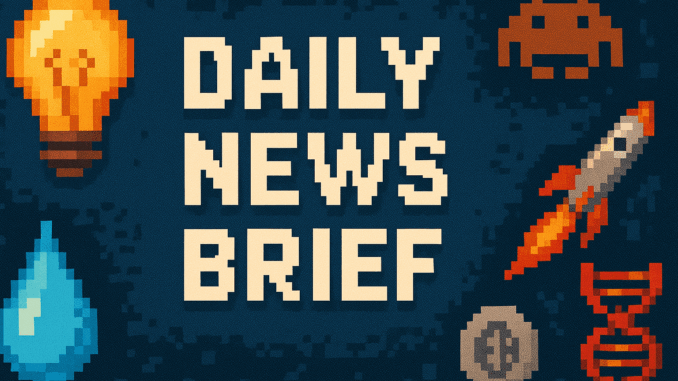
Voda Secures £650,000 Investment for AI Water Purification
Source: UK Tech Investment News
London’s innovative startup, Voda, has clinched a cool £650,000 in seed funding led by Impact Shakers Ventures. Specialising in AI-fuelled water purification systems, Voda is on a mission to tackle global sanitation woes head-on. This latest cash injection will fast-track their plans to deploy solutions in developing regions while diving deeper into modular purification units suited for existing infrastructure. This vote of confidence in Voda underscores the rising traction of UK-born sustainable tech designed to meet UN Sustainable Development Goals. Such advancements remind us of the days we boiled kettles for that elusive “pure” cup of tea, now a relic like dial-up modems.
HMRC’s AI-Driven Tax Crackdown
Source: MSN News
The taxman’s got a new digital hammer-and it’s powered by AI. HMRC is unleashing 1,400 agents equipped with cutting-edge auditing tools to scrutinise tax compliance among wealthy individuals and corporations. By cross-referencing data from property records to cryptocurrency transactions, HMRC aims to detect discrepancies before they grow roots. This marks the UK’s largest push into digital tax surveillance, leaving us to ponder whether HMRC could track down those teenage PAYE slip dramas with similar zeal. For those playing it fast and loose with offshore holdings, expect robotic reminders before enforcement comes knocking.
NHS to Begin DNA Screening of Newborns
Source: MSN Health
In a move straight out of the future, the NHS is rolling out whole-genome sequencing for all newborns starting Q1 2026. Spearheaded by Health Secretary Wes Streeting, this initiative aims to identify over 200 genetic conditions, potentially reducing child mortality by 15% in the next decade. Within 72 hours, AI-driven cloud analysis will churn out results, sending many a parent into early bedtime relief. While our kids might not appreciate the leap from heel-prick tests to genomic maps, it’s a health upgrade that makes drawing bitmaps on a ZX Spectrum seem truly prehistoric.
Metal-Fuelled Plasma Thruster Set for September Test
Source: BBC News
SatThrust, a UK space innovation firm, is ready to test its groundbreaking metal-powered plasma thruster this September. Bucking the trend of relying on costly xenon gas, this new engine utilizes aluminium powder to manoeuvre satellites, extending their life by an impressive 3-5 years. Developed in collaboration with the University of Southampton, this thruster could catapult the UK to the forefront of sustainable satellite propulsion, with the European Space Agency already intrigued by its potential for lunar missions. Picture replacing your shell suits with polished metal powder; it’s the Amstrad CPC of propulsion.
Domino Data Lab: A Visionary in AI Platforms
Source: UK Tech News
Gartner’s Magic Quadrant has a bright, new star-and it’s London’s own Domino Data Lab. Named a Visionary, Domino stands tall for its enterprise-grade MLOps architecture and reproducibility features. Enabling AI teams to meticulously track experiments and manage models with robust audit trails, Domino is making waves in regulated industry circles. Now rubbing shoulders with titans like IBM and SAS, Domino remains unfazed, proving once more that when it comes to model management, even our old code notebooks pale in comparison to their sophisticated system.
This Day in Tech History: Quake and the Birth of Online Deathmatch
On this day in 1996, id Software released Quake, etching a tremor in the gaming world that reverberates to this day. Those dial-up tones, the flicker of CRTs, and Trent Reznor’s bass-heavy soundtrack encapsulate the era. Quake wasn’t just a 3D adventure; it released the first true online deathmatch, spawning a modding movement that forever altered gaming interactions. In today’s realm of crossplay and ray tracing, it’s worthwhile to revisit the pixels and packets that turned “fragging” into a verb and transformed rivals into long-lasting digital companions.

Leave a Reply